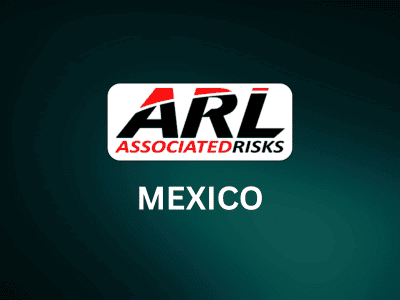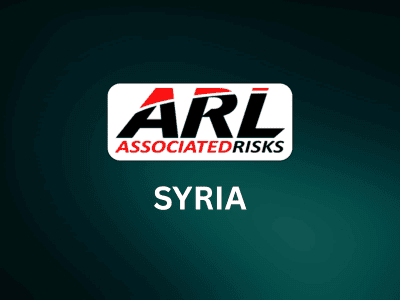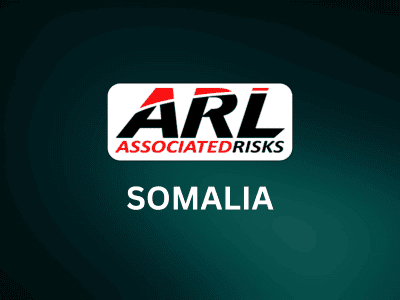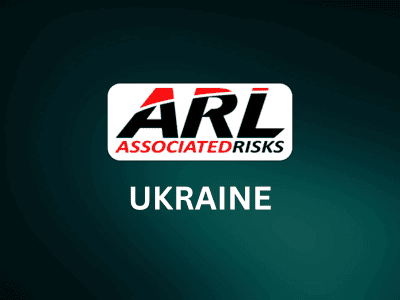Hostile Environment Awareness Training (HEAT)
Trust our experienced instructors to deliver world-class Hostile Environment Awareness Training (HEAT)
Comprehensive Hostile Environment Awareness Training (HEAT) in Lebanon for NGOs, Corporate Teams, Oil & Gas Personnel, and Humanitarian Staff Operating in High-Threat and Politically Unstable Zones
Associated Risk delivers specialized Hostile Environment Awareness Training (HEAT) in Lebanon, specifically designed for NGOs, humanitarian teams, corporate staff, and energy sector personnel preparing to operate in high-threat environments, including areas affected by political instability, civil unrest, and organized criminal activity. Our programs equip participants with critical situational awareness, practical security skills, and rapid decision-making capabilities, ensuring they can navigate volatile regions safely. The training covers travel security protocols, kidnap avoidance strategies, urban and rural threat mitigation, and emergency crisis response, combined with hands-on scenario exercises that mirror the realities of Lebanon’s operational landscape. Training can be delivered on-site, in-country, or at one of our global training centers, providing flexible, realistic, and scenario-driven programs wherever your teams need to deploy.
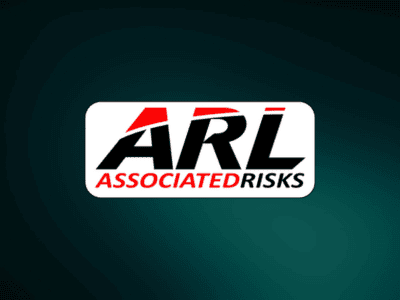
Hostile Environment Awareness Training (HEAT)
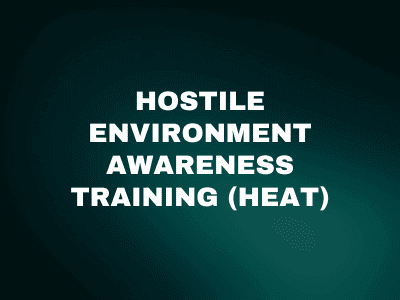
Hostile Environment Awareness Training (Lebanon)
Advanced Scenario-Based HEAT and Redeployment Training Programs for Humanitarian, Corporate, and Oil & Gas Teams Operating Across Beirut, Tripoli, Tyre, and the Bekaa Valley with Realistic Urban and Rural Threat Simulations
Our advanced HEAT courses in Lebanon integrate scenario-based exercises to replicate the operational challenges faced in urban, rural, and border regions, including Beirut’s high-risk districts, Tripoli’s northern zones, Tyre’s coastal areas, and the Bekaa Valley border regions. Participants receive hands-on training in mine awareness, unexploded ordnance (UXO) recognition, and improvised explosive device (IED) response, alongside modules on drone threat recognition, crisis management, and kidnap prevention. These exercises develop critical decision-making skills, operational confidence, and resilience, ensuring personnel can respond effectively to evolving threats while maintaining mission continuity and personal safety in Lebanon’s complex security environment.
Tailored HEAT Programs for NGOs, Media Teams, and Development Professionals Operating in Lebanon’s Conflict-Affected and Politically Volatile Regions with Emphasis on Cultural Competency and Risk Assessment
Specialist HEAT training is designed for NGOs, humanitarian organizations, journalists, and development personnel working in conflict-prone and politically sensitive areas of Lebanon, such as urban Beirut, Tripoli, and rural Bekaa Valley regions. Our training emphasizes personal safety, operational risk assessment, cultural awareness, and navigation through high-risk checkpoints. Through field-based simulations, crisis response drills, and emergency scenario exercises, participants develop practical skills to minimize threats, maintain situational awareness, and execute operational objectives safely, ensuring their ability to operate efficiently in Lebanon’s challenging operational landscape.
Our programs provide the latest, most comprehensive, and practical HEAT training, ensuring personnel are equipped with the skills and knowledge to handle real-world threats effectively.
Specialist HEAT Courses for Oil & Gas Contractors and Critical Infrastructure Personnel Operating in Remote, High-Threat, and High-Value Locations Across Lebanon’s Energy and Industrial Sectors
Personnel operating in Lebanon’s energy, oil and gas, and critical infrastructure sectors face unique challenges due to remote locations, high-value assets, and exposure to political or criminal threats. Our specialist HEAT courses provide advanced convoy security, route planning, hostile incident response, and remote site protection. By combining intelligence-led threat briefings with hands-on field exercises, participants gain the ability to handle security incidents, medical emergencies, and evacuation scenarios, ensuring personnel safety, operational resilience, and continuity of operations in Lebanon’s most challenging operational zones.
Integrated Kidnap & Ransom Awareness, Crisis Management, and Survival Skills Training for Personnel Deploying to Lebanon’s High-Risk Environments Including Border Areas and Urban Hotspots
Our comprehensive HEAT modules include kidnap and ransom (K&R) awareness, crisis management protocols, and survival skills tailored for personnel deployed to high-risk Lebanese environments, including border regions, southern coastal zones, and urban hotspots like Beirut and Tripoli. Participants engage in simulated abduction scenarios, austere environment survival exercises, and operational crisis response drills, equipping them with the knowledge, confidence, and practical skills necessary to respond effectively to attacks, ambushes, or sudden emergencies while maintaining mission continuity and personal safety.
Daytime and Nighttime Scenario-Based HEAT Training for NGO, Corporate, and Media Personnel Operating Across Lebanon’s Most Volatile Urban Districts and Rural Border Regions
Associated Risk offers daylight and nighttime HEAT scenario training for NGO staff, corporate teams, and journalists operating in Lebanon, including Beirut, Tripoli, Bekaa Valley, and southern border areas. Training emphasizes urban threat simulations, rural ambush drills, checkpoint navigation, and high-pressure decision-making exercises, developing critical situational awareness, operational confidence, and rapid response capability. Personnel are fully prepared to mitigate threats safely, whether performing routine activities or responding to hostile incidents in Lebanon’s complex operational environment.
Tailored Pre-Deployment and Redeployment HEAT Programs for Teams Returning to High-Risk Lebanese Areas with Focus on Updated Threat Intelligence, Crisis Response, and Operational Preparedness
For teams redeploying to Lebanon, our HEAT programs provide updated threat briefings, situational awareness refreshers, cultural orientation, and advanced travel security protocols. Covering Tripoli, Bekaa Valley, and southern coastal regions, these courses ensure personnel are fully prepared for redeployment to high-risk areas, trained in emergency planning, crisis management, secure movement, and operational decision-making, enabling safe, effective, and confident performance in Lebanon’s dynamic high-threat operational environment.
World-Class Hostile Environment Awareness Training (HEAT)
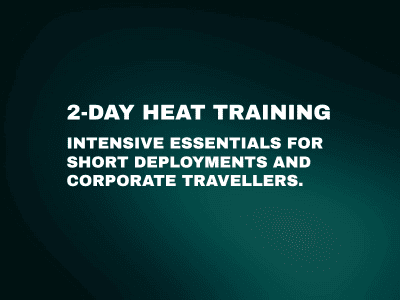
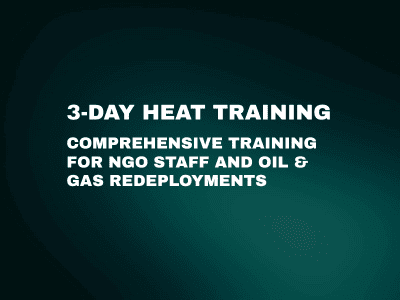
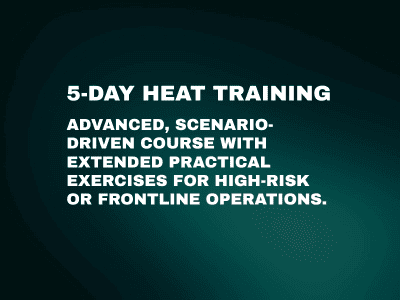
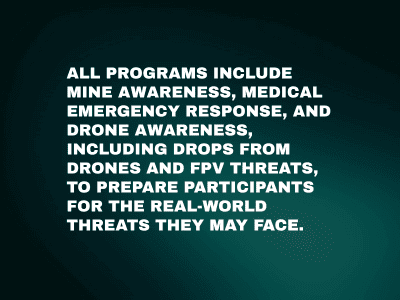
Specialized HEAT Training for Cross-Border Operations and High-Risk Travel in Lebanon’s Northern and Eastern Border Regions Including Akkar, Arsal, and Hermel
Associated Risk provides specialist HEAT programs for teams conducting cross-border missions, humanitarian operations, and logistical travel in Lebanon’s northern and eastern border regions, including Akkar, Arsal, and Hermel. Training covers safe travel planning, convoy security, and local threat assessment, while equipping participants with skills to identify and respond to armed groups, smuggling activity, and civil unrest. Through scenario-based exercises, participants gain practical experience in situational awareness, emergency extraction, and operational decision-making, ensuring teams can operate securely and effectively in volatile border environments.
Integrated Medical Response and Trauma Management Modules for HEAT Participants Operating in Lebanon’s High-Threat Urban and Rural Zones
Our HEAT courses include comprehensive medical response and trauma management training designed for personnel operating in high-risk Lebanese environments, including urban districts of Beirut and Tripoli, and rural areas of the Bekaa Valley and southern coastal zones. Participants are trained in field triage, casualty evacuation, and first responder medical interventions under stress, combined with risk assessment for exposure to mines, IEDs, and hostile encounters. By practicing realistic, scenario-driven exercises, teams develop confidence, speed, and precision in managing medical emergencies while maintaining operational effectiveness.
Advanced Drone Threat Awareness and Countermeasure Training for Corporate, NGO, and Energy Sector Teams in Lebanon’s High-Risk Operational Areas
With the increasing use of drones and FPV aerial threats in operational environments, our HEAT training incorporates drone threat recognition, mitigation, and countermeasure strategies for personnel deployed in Beirut, Tripoli, Bekaa Valley, and southern Lebanon. Participants learn to identify potential drone attacks, implement protective measures, and coordinate emergency response. Combined with scenario-based simulations, these modules enhance situational awareness, proactive threat mitigation, and personnel safety, ensuring teams can operate effectively in both urban and remote operational contexts.
Custom HEAT Training for Long-Term Operations, Redeployment, and Continuous Risk Management for Teams Supporting Lebanon’s Critical Infrastructure and Energy Sectors
Associated Risk delivers tailored HEAT programs for teams engaged in long-term deployments or redeployment to Lebanon’s critical infrastructure and energy sectors, including oil, gas, and industrial projects. Training emphasizes continuous risk assessment, operational intelligence integration, secure movement, and emergency evacuation protocols, ensuring teams are prepared to respond dynamically to evolving threats. By combining intensive field exercises with real-time intelligence updates, personnel gain resilience, situational awareness, and operational proficiency for sustained high-risk deployments across Lebanon.
Request a Quotation
Frequently Asked Questions
HEAT in Lebanon provides practical training for personnel operating in high-risk and politically unstable regions, including Beirut, Tripoli, Bekaa Valley, and southern coastal zones. It equips NGO staff, corporate teams, and energy sector personnel with critical skills in situational awareness, risk mitigation, and crisis response, enabling them to operate safely in volatile urban, rural, and border environments.
HEAT courses are tailored for NGO personnel, humanitarian and development staff, corporate teams, journalists, and oil & gas contractors. Any organization sending teams to high-risk areas, including conflict-affected urban districts, remote energy sites, or politically sensitive regions, will benefit from practical security, crisis management, and survival skills.
Training covers Beirut, Tripoli, Tyre, Akkar, Arsal, Hermel, Bekaa Valley, and surrounding high-threat regions. Courses address urban crime, civil unrest, border tensions, and industrial site risks, providing realistic, scenario-based exercises for each operational environment.
Our programs combine scenario-based simulations, urban and rural threat exercises, medical emergency response, kidnap and ransom awareness, drone threat countermeasures, convoy security, and situational decision-making. Participants gain hands-on experience, preparing them for real-world operational challenges.
Yes. Courses are fully tailored for humanitarian, corporate, and oil & gas teams, including pre-deployment, redeployment, and long-term operational support. Programs incorporate sector-specific risk intelligence, field exercises, and cultural competency modules to meet operational needs.
Instructors combine international security expertise with local operational knowledge, covering urban and rural high-risk areas, border zones, and critical infrastructure sites. This ensures participants receive contextually aware, realistic, and effective training for their specific deployment.
You can contact Associated Risk to schedule an initial consultation. We will assess your team’s operational requirements, deployment locations, and threat exposure, then develop a custom HEAT program. Training can be delivered on-site, in-country, or at one of our international centers, with ongoing support for redeployment and mission readiness.

